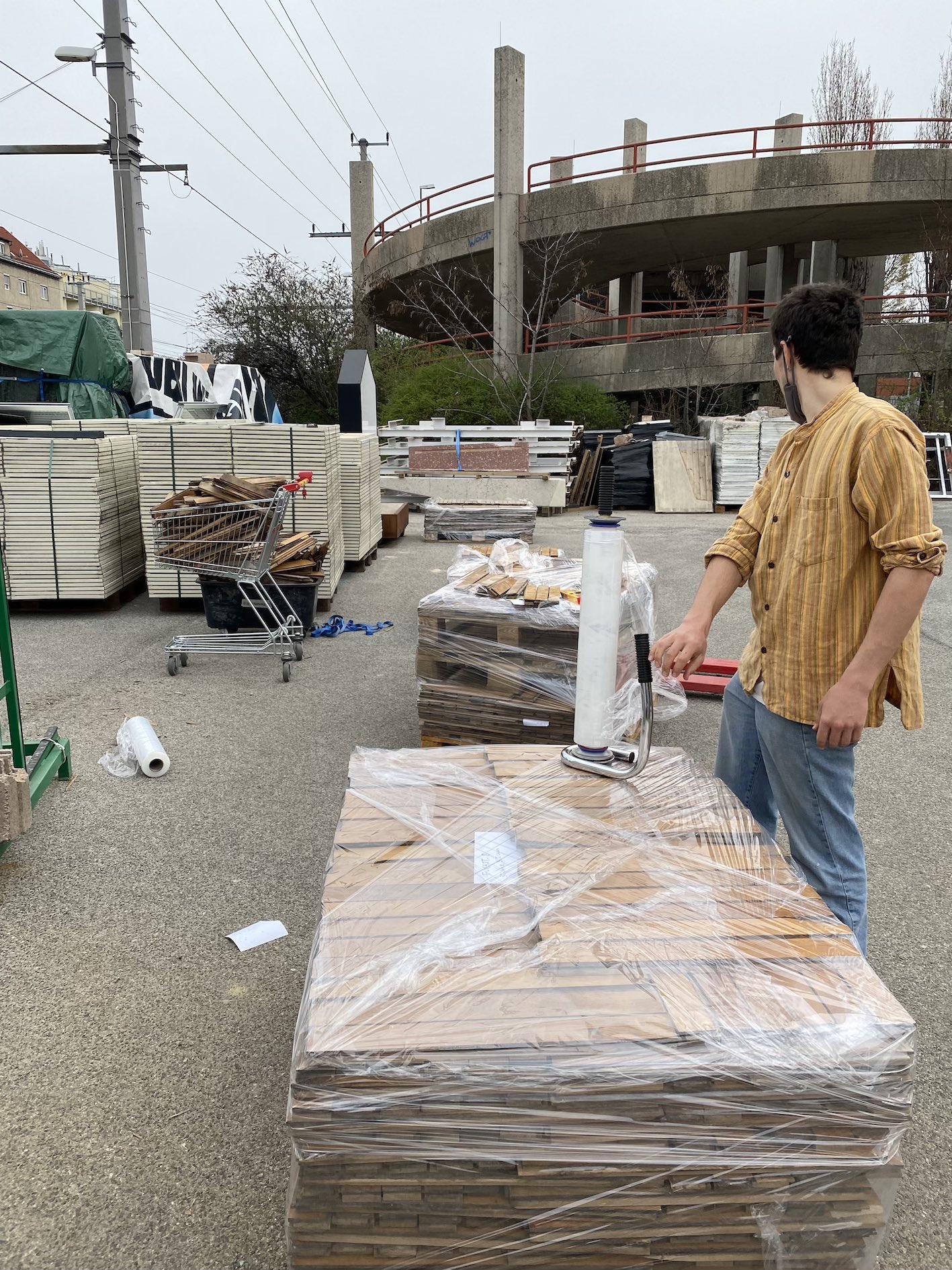Circular Economy as Human-Material Relation
Understanding the Reuse of Building Materials through Historical Sources and Ethnographic Data

In this article, we provide a new approach to circular economy in architecture based on the juxtaposition of historical sources and ethnographic data. We bring into dialogue historical practices of rubble reuse in Warsaw after the Second World War with contemporary efforts to salvage components in buildings slated for demolition in Vienna. The analysis of archival and published documents, construction and architecture magazines, and visual sources is combined with participant observation in a start-up company in Vienna. Our research methods have led us to respond critically to the solutions presented by the current debates on the reuse of construction and demolition waste. For past and present reuse practices, we uncover and scrutinise a complex social and bodily reality often obscured by the images of seamless and endless circulation of construction materials promoted by policymakers, industry leaders, architecture professionals, and positivist academic researchers. (Photo: V. Feri 2022)
Kobi, Madlen, and Adam Przywara. 2025. "Circular Economy as Human-Material Relation. Understanding the Reuse of Building Materials through Historical Sources and Ethnographic Data." Zeithistorische Forschungen 21(1): 57-80.